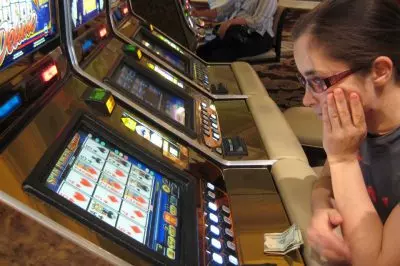 For 2016 it was estimated that players had lost £1.8 Billion in total on gaming machines due to the revenue increase, which, on the other hand, led to the percentage boost on all wagers, which the casino operators keep.
For 2016 it was estimated that players had lost £1.8 Billion in total on gaming machines due to the revenue increase, which, on the other hand, led to the percentage boost on all wagers, which the casino operators keep.
The amount of the profit from gaming machines reached record high levels in comparison to the previous years. According to a survey, conducted by the Gambling Commission, the amount of money, which the players lose by playing on gaming machines is £1.8 Billion per year. Furthermore, the figures reveal that the betting shops earn 56% gross gambling yield (GGY) only from these fixed odds betting terminals (FOBTs), better known as gaming terminals. To be more clear, GGY is the net profit of the gaming operators, after paying out all the winnings.
Presented in numbers, this means that every player in Britain loses more than £27. In response to these, the Association of Bookmakers explained that the increase is absolutely sensible, having in mind the overall increase in tax revenues for the whole gaming sector. It was reported that the revenue from FOBTs in the gaming shops has increased by 3% in comparison to the previous year. This growth is seen as being in touch with the average growth of the whole gaming industry.
This drew the attention of the government, which decided to consider new ideas for the operation of the gaming machines. The plan emerged on the surface late in the previous year, but the outcome is expected to take more time due to the general election campaign. It was suggested that the allowed stakes on the gaming machines should be dropped down to £2 instead of the current £100 maximum. The future of the gaming machines is still unclear, because it is directly dependent on the result of the general elections. Thus, a solution is expected to come after the end of the general elections.
The total GGY has been calculated to mark an increase from £13.4 billion to £13.8 billion for the British gambling industry. The largest sector, which contributes the highest to these numbers is the online gambling, with 32% of the total British GGY. It is followed by the casino games and sports betting.
According to a statistics, the gaming machines contribute more to the GGY in betting shops, estimated to be 56% compared to the over-the-counter betting. However, the casino industry observed an interesting tendency for the last three months and that is the reduced number of betting shops.
Betting shops have observed an increase in the GGY, derived from the gaming machines, estimated to be up to 56%. This “inflation” in terms of revenues means an average loss of £27 per capita. On the other hand, the betting shop managers see it as a normal tendency, shielding themselves behind the revenue increase imposed on all sectors of gambling.